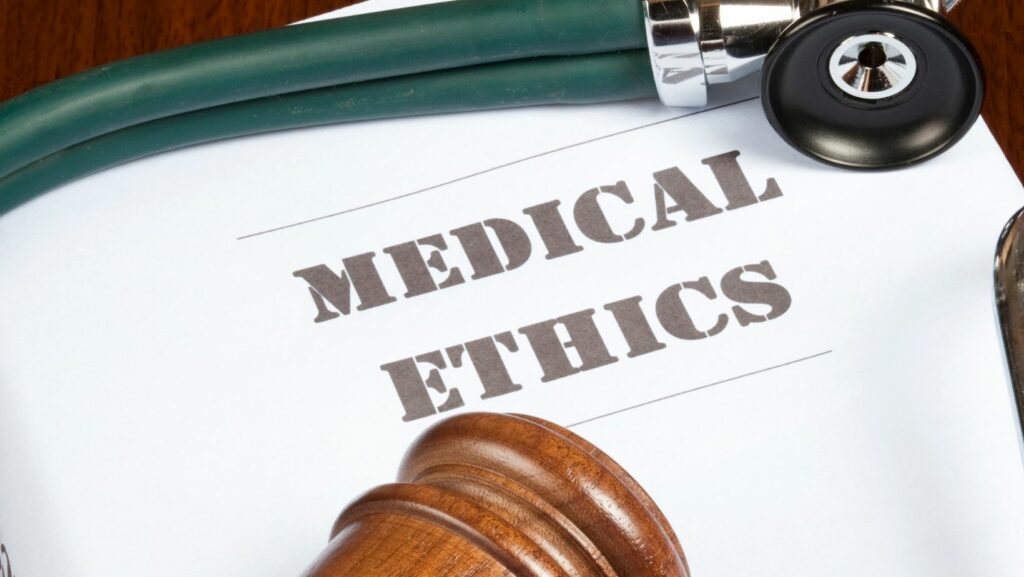In the ever-evolving landscape of medicine, ethical considerations continue to play a pivotal role. They’re the backbone that guides the decisions and actions of healthcare professionals worldwide. This article delves into the latest news and developments in the realm of medical ethics, offering a fresh perspective on these crucial matters.
Medical Ethics News

Emerging ethical issues in healthcare present significant talking points around the globe. Genomic medicine, an area that delves into our genetic makeup, poses new ethical challenges. Advances such as genetic engineering techniques, including CRISPR gene-editing technology, present dilemmas around the risks and rewards of altering human DNA.
Another pressing issue involves Artificial Intelligence (AI) and its use in healthcare. AI offers huge potential for improving care, from early diagnosis to personalized treatment. However, it also can raise concerns about patient data privacy and the impersonal nature of algorithm-driven care.
Lastly, physician-assisted dying, often a controversial topic in medical ethics, continues to provoke extensive debates. Various jurisdictions around the world, such as Canada and the Netherlands, have legalized this practice, raising profound questions about the sanctity of life, patient autonomy, and the role of physicians in assisting death.
Key Cases Impacting Medical Ethics in Recent Years
Breakthroughs in medical treatments often come with ethical complexities. Three critical cases in recent years highlight this conundrum.
Firstly, the case of ‘Charlie Gard’, a British patient, raised global questions about parental rights and the extent of medical intervention. A court verdict in favor of the hospital limiting life-support sparked controversy intensifying the debate on autonomy and medical futility.

Secondly, the ‘Jennifer Doudna and Emmanuelle Charpentier’ CRISPR case ignited a discourse on bioengineering ethics. Their groundbreaking technology for gene editing presents golden opportunities to eradicate genetic disorders; however, it also opens Pandora’s box. Questions arise about unintended consequences and the ethics of creating “designer babies.”
Lastly, a case symbolized by the pseudonym ‘J.D.’, underlined the ethical maze in unconscious patients’ healthcare decisions. J.D., an undocumented immigrant, fell into vegetative state with no family to consult on care decisions.
Role of Ethics Committees in Shaping Medical Practices
Ethics committees manifest crucial roles in overseeing medical practices, principally safeguarding patient rights, evaluating research proposals, and maintaining professional standards. Acting as a steward, their function extends beyond mere consultation to advocating for ethically sound healthcare environments. They often grapple with dilemmas similar to those in the ‘Charlie Gard’, ‘CRISPR’, and ‘J.D.’ cases, establishing guidelines to navigate such complex issues.
For instance, in medical research, they scrutinize proposals, ensuring protection of research subjects, maintaining the principle of informed consent, and minimizing harm. Their involvement plays a pivotal role in ethical advancements, such as in the cases of genomic medicine and AI in healthcare.

Moreover, they act as mediators in healthcare disputes. They navigate complicated situations, balancing between respect for patient autonomy and healthcare professionals’ responsibilities. Their decisions, thus, shape the trajectory of ethical practices in healthcare. These roles, along with highlighting the perpetual need for ethical committees, underscore their significance in maintaining the integrity of medical practices.
Educational Initiatives to Promote Medical Ethics
As the landscape of healthcare continues to evolve, so too does the role of medical ethics. With the advent of genomic medicine and AI, the need for ethical oversight is more pressing than ever. Ethics committees have proven to be instrumental in this regard, safeguarding patient rights and shaping the ethical trajectory of healthcare practices. They’ve shown their mettle in high-stakes cases like ‘Charlie Gard’, ‘CRISPR’, and ‘J.D.’, and continue to steer the path of medical decision-making. Their influence underscores the importance of educational initiatives aimed at promoting medical ethics. By fostering a deeper understanding of ethical considerations, we can ensure that healthcare remains a field guided by principles of respect, fairness, and justice. The future of medicine hinges on our commitment to these ethical standards. Let’s make sure we’re ready to meet the challenge.
